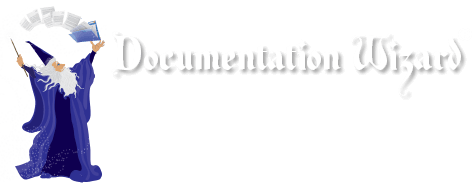QUESTION: Should I Document Medications on Progress Notes?
I have heard from others, who consider themselves Medicare documentation experts, that it is unnecessary to document anything about psychiatric medication compliance and effectiveness. They advise against it as it is the prescriber’s job, not the psychotherapist’s job. Should I document medications on progress notes?
ANSWER
With all due respect, I disagree with those who say that monitoring meds is out of our scope of treatment. One would think that the reasons why would be simple, but, as is common in mental health care, the reasons are nuanced.
Though documenting medications on the Diagnostic Assessment (Intake Assessment/Bio-Psycho-Social Assessment), is mandatory, documenting medications and medication concerns in each session note is not “mandatory.” However, it is best practice. Checking on our clients’ medications is not out of our scope of treatment as mental health therapists. Therapists typically see clients more often than prescribers. We are therefore more poised to spot a potential medication issue faster than during a psychiatric checkup that happens every 3 months – if that often. We monitor for possible side effects, compliance, changes in mental status that may be a result of psych meds, and more. Based on our monitoring, we may recommend our client gets a med check. As a professional standard of care, we are required to communicate our concerns to the prescriber as a collateral contact. Doing so is quality care.
I provided consultation to a therapist who was audited on a client he’d been seeing for 20 years. Though considered one of the “walking wounded,” this client needed continued therapy to stay functional. With therapy and meds, the client was highly functional. Without – the client decompensated. The insurance company insisted that the therapist track the client’s response to the medications for 3 months before agreeing to authorize continued treatment for the rest of the year. Having the name, dosage, and frequency on each session note facilitated the monitoring of the client’s response to the meds. Having this information on each session note is a cue to the therapist to ask about medications — and document any changes on the day the information comes to light. The Documentation Wizard Clinical Forms, developed to meet all Medicare standards, have a prompt for this on the session note (and the Diagnostic Summary and Treatment Plan).
In particular, when working with elders and kids, who are most sensitive to even the slightest medication and medication changes, we are particularly obliged to know and check in on medication compliance and potential side-effects. It could save their lives. It could also save you from a legal nightmare if something is amiss and you catch it.
I highly respect the other experts on documentation. I’ve taken their trainings and I know what’s on their forms. Though I understand that other documentation experts believe that we don’t need to document medications, because medications are out of our scope of treatment, I disagree. We are not stepping on the prescriber’s toes. We’re gathering information to recommend that the client get a check-up and/or information to write a collateral contact note to the prescriber or call the prescriber and express our concerns.
It’s important to report to the insurance company that we’re attentive to all aspects of the client’s mental health care. It can save both lives and our licenses. Thorough documentation not only protects us from legal issues, it improves our clinical skills and contributes to high quality care. For the clinical forms that cue you to document all requirements (to Medicare standards), checkout the Documentation Wizard Clinical Forms.

I have always “checked-in” with the client on their meds and how they are doing and note it. Mainly because we work around psychiatrist’s, and they read my notes before the next time the client sees them. It is beneficial for the psychiatrist to see how they are responding to their medication, if they are compliant on taking it as prescribed, if they are drinking or using drugs that may have impact on medications, or other problems that arise such as “I ran out of my medication 3 days ago” which their scrip should have covered the duration they needed. I also note other changes in information not originally captured on the assessment, with manic periods suddenly seen and not reported, in a client by self-reports, suicidal thoughts that suddenly start, or other issue areas. We see the client much more than the psych department, so tracking those changes are necessary.
Patrick, thank you so much for weighing in on this important topic and providing even more reasons why we need to check in on meds.